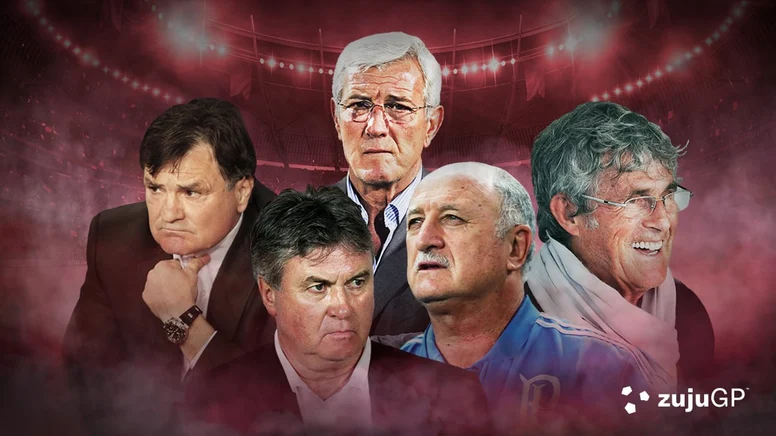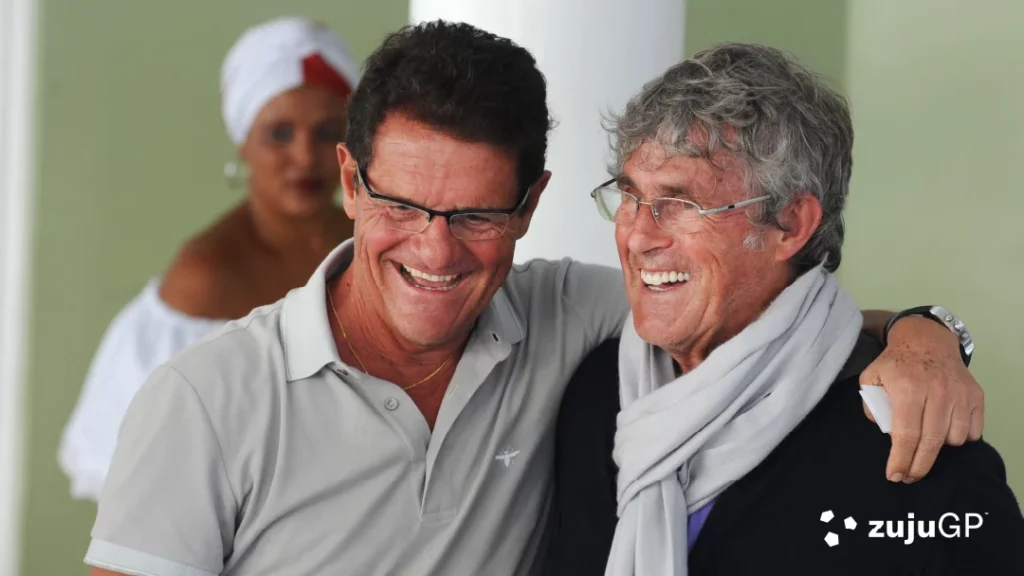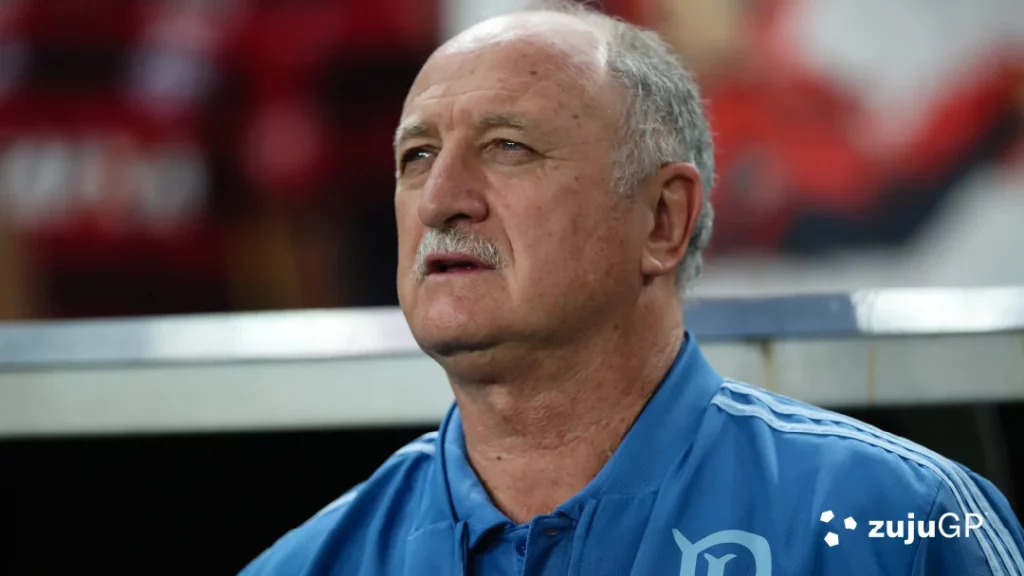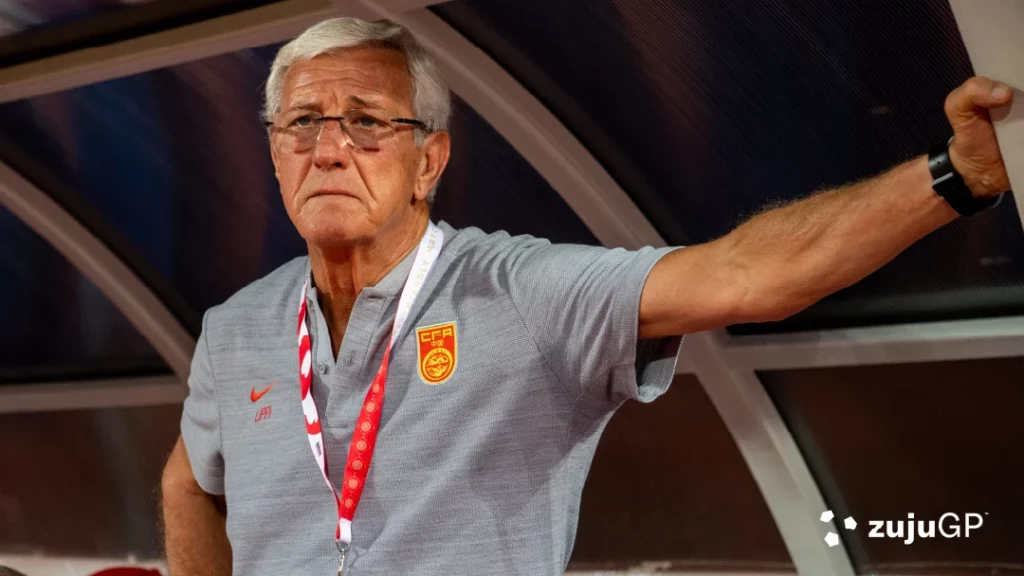
China’s World Cup debut in 2002 was a source of great pride. The world’s most populous country had finally made a belated appearance on the world stage, alongside fellow newcomers Ecuador, Senegal and Slovenia. The sleeping giant had finally awakened, eager to make an impression at the first World Cup held in Asia.
While not much was expected from the team, which was at that time the lowest ranked qualifier (ranked 50th in the world) in the competition, there was a hope that this would be the first of many sich appearances now that they had broken through.
The team was led by an experienced coach in Bora Milutinovic, who became the first to make five consecutive World Cups with different teams, and European-based players like Fan Zhiyi (Dundee), Sun Jihai (Manchester City), Li Tie (soon to go on loan at Everton) and Yang Chen (Eintracht Frankfurt).
China would bow out in the group stages after losing all three matches and conceding nine goals, but the thought was that they’d be back again one day, stronger and eager to impress.
Instead, with the twentieth anniversary of their sole appearance approaching, China appears no closer to making another World Cup. Since Milutinovic, they have gone through five foreign and four local coaches but have not managed to find that spark to return to the promised land.
The aforementioned Li Tie is currently at the helm, with the local vs foreign coaching debate showing no signs of abating. But given the calibre of coaching that has come before the 44-year-old, is it really fair to blame China’s football malaise solely on the one man in charge?
Meanwhile, the Chinese Super League has gained prominence in Asia with some high profile acquisitions both in the coaching and playing ranks. Clubs like Guangzhou FC and Shanghai Port have not been shy to put their money where their mouth is when it comes to paying massive annual salaries to big names.
But has this investment in foreign coaches been worth it?
We take a look at Milutinovic and some of the foreign coaches that have worked in China. Were they worth their considerable expense, or is it perhaps wiser to stick with local talent and work on the fundamentals? What did these illustrious coaches bring to the table over the years?
Bora Milutinovic
There is no denying the impact that Milutinovic had on Chinese football. A journeyman coach, the Serb has managed teams in several different continents and had taken four different teams to the knockout stages of the World Cup when he was appointed to the Chinese national team.
China finished top of their qualifying group ahead of the likes of the United Arab Emirates, Uzbekistan, Qatar and Oman to book their tickets to Japan and South Korea.
With his philosophy of “happy football”, Milu (as he was fondly known by Chinese football fans) is still a popular figure in China and even maintains a Chinese social media account, calling himself an “old friend of the Chinese people”.
While he was not the first foreign national team coach in China, coming after the likes of German Klaus Schlappner and Englishman Bobby Houghton, his success spurred the Chinese Football Association (CFA) into investing more money on high profile foreign coaches who never quite reached the heights of their beloved predecessor.

José Antonio Camacho
While Milutinovic was extremely popular in China, the same could not be said of Camacho, who signed a three-year deal to coach the national team for a reported annual salary of US$8m in 2011. While he wasn’t paid to be nice, results under the Spanish coach were highly disappointing too.
The former Real Madrid manager struggled to make any headway with the national team, ultimately winning only seven of his 20 games in charge. The lowlight was a record 0-8 friendly whalloping by Brazil in 2012, which dropped the team to an all-time low of 109th in the FIFA World Rankings.
Results did not improve and following another shock 1-5 friendly loss to Thailand in 2013, Camacho was relieved of his post. While some might argue that bad luck and political concerns did him no favours, his hefty contract with few performance requirements and that huge annual salary cost the CFA dearly.
Luiz Felipe Scolari
Scolari’s connection to China was perhaps meant to be. The Brazilian’s interest in Chinese culture was such that he was reported to use lessons from Sun Tzu’s Art of War to set up his tactics on the pitch. He once even handed out copies of the book to every Brazilian player at the 2002 World Cup!
While some fans might have criticised Scolari’s massive salary, his impact was undeniable as he led Guangzhou Evergrande to three consecutive league titles from 2015 to 2017 as well as an AFC Champions League title triumph over Emirati powerhouses Al Ahli in 2015.
He remains Guangzhou’s most successful coach to date.

Guus Hiddink
Another highly respected coach with an extensive CV, Hiddink’s stint in China was short and ultimately disappointing.
The Dutchman had enjoyed highly successful spells with the Netherlands, South Korea and Australia, as well as club stints with Valencia, Real Madrid and Chelsea.
When he was hired by the CFA, the expectation was that he would turn the Under-21 national team’s fortunes around and perhaps nurture the next generation of Chinese talent. But instead, a string of underwhelming results, including a 2-0 defeat to Vietnam, led to his sacking a year after his appointment.
In this case, paying a premium for a well-known tactician seemed to have backfired spectacularly.
Marcello Lippi
“I don’t like to make a lot of money without deserving it,” Lippi said as he stepped down as head coach of the Chinese national team for the second time.
The Italian coach’s time in China has had its share of ups and downs, as he remains the only coach in history to have won both the UEFA Champions League and AFC Champions League.
His signing by Guangzhou in 2012 was hailed as a coup, a statement of intent with a massive two-and-a-half year deal worth €30 million. His time with the club was one of unprecedented success, as he led them to three Chinese Super League titles as well as the Champions League trophy.

However, he found his time with the Chinese national team much more difficult. “Lippi is like a University professor,” said Gao Lin, the Guangzhou Evergrande and China striker. “He has a lot of ideas, skills and tactics but if European players are college or graduate students, us Chinese players are like high school students only. We still can’t understand such high profile tactics.”
And so it came to pass that Lippi would accept that taking the Chinese national team to the next level would perhaps be too ardous a task. “It’s been almost eight years in China and I have had a great time,” he said. “Now I realise that I am not able to repay this great trust and respect towards me and that’s why I left.”
Exploring a partnership?
We welcome visionaries who are looking to build a digital football future together.
